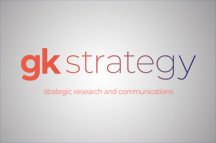What might the local elections mean for Brexit?
Over the next few days the country prepares to go to the polls again. The recent focus has been on the European elections and celebrity candidates, but next week’s local elections may provide some notable moments. We are unlikely to find out much from the results about the possible outcome of the European elections, and even less so a hypothetical general election, but it may provide a further challenge for the Government as it tries again to move Brexit forward. The elections are for seats last contested in 2015 at the same time as the general election – the Conservatives will hope at least to maintain a large share of the vote among areas that voted for Brexit as well as warding off the advances of the Liberal Democrats in areas such as Bath, where the Tories made gains from the Lib Dems last time (including winning the parliamentary seat, which was re-taken by the Lib Dems in 2017). If it fails to do balance both of these, it adds just a little more political pressure on the Government.
Debt enforcement under scrutiny
The debt enforcement sector is awaiting the outcome of the Government’s review of its current regulatory framework, which was largely set by reforms implemented in 2014. Amid the review process, the Government has been facing strong calls for the creation of a new independent regulatory body. The proposal has some high-profile support on the opposition benches – chair of the Business, Energy and Industrial Strategy Committee Rachel Reeves is one backer of more stringent regulation of the market – and has gathered backing across different political parties. Despite the 2014 reforms having largely been perceived as a positive step forward by all sides, and the Government committing to greater action to protect vulnerable debtors in the form of a ‘breathing space’ scheme, there is pressure on policy-makers to consider what more can be done. The outcome of the review is expected shortly – whatever steps the Government takes in response, we can expect some opposition politicians to continue pushing for further change.
Former Care Minister criticises Government over restraint of children in care
A debate led by former Care Minister Norman Lamb yesterday raised the issue of restrictive interventions on children, and the lack of appropriate guidance made available by the Government. Lamb’s call for the Department for Education to issue new guidance that would limit the use of physical restraint and make clear that physical force cannot be used as a punishment for vulnerable children in care. Following lengthy debate over recent years around the deprivation of liberty safeguards dealing with the restraint in particular of adults in care, there is now pressure on the DfE to respond to interventions in the care of children. Although the Government has not committed to any concrete change, providers should be prepared for increasing political and media scrutiny of the use of physical restraint in care settings, and ensuring they are at least fully compliant with existing guidance on the issue.
Jamie Cater, the brains behind a lot of GK’s thinking, leads our policy work across the entire business but with a specialism in providing strategic advice to investors during M&A activity.














